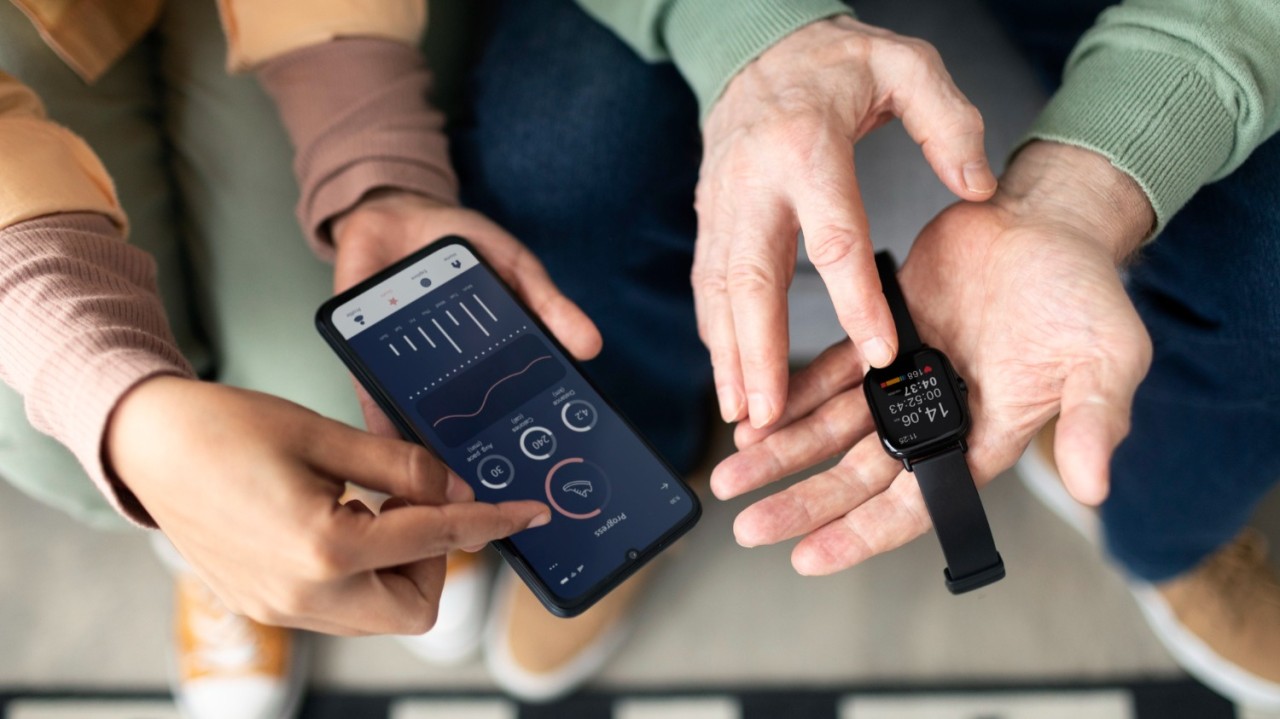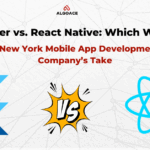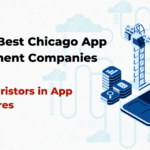
Wearable technology represents a significant advancement in the technology sector, fundamentally altering our interactions with digital devices. Ranging from fitness trackers to smartwatches, wearable technology is rapidly establishing itself as a vital component of contemporary life. For mobile app development company in the UK, this trend introduces both challenges and opportunities. This article will examine how wearable technology is transforming the focus of mobile app development companies and the necessity for them to adapt to remain competitive in a market increasingly influenced by wearables.
The Rise of Wearable Technology
Wearable technology encompasses devices that can be worn on the body, specifically designed to gather, analyze, and disseminate data. These devices typically incorporate sensors and connectivity features, enabling them to deliver real-time information on a range of topics, including physical activity and health indicators. Notable examples include fitness trackers, smartwatches, smart glasses, and health monitoring systems.
As technological advancements continue, the functionalities of these devices are expanding significantly. Wearables have evolved beyond mere fitness tracking to include diverse applications in healthcare, communication, and entertainment. This rapid evolution has created new opportunities for innovation, highlighting the pressing need for mobile app development companies to adopt wearable technology and incorporate it into their product offerings.
Wearables and Their Impact on the Mobile App Development Industry
The demand for applications that cater to wearable devices has significantly risen for mobile app development companies in the UK. The wearable technology market is projected to experience considerable growth, presenting both opportunities and challenges for developers. Applications tailored for wearables necessitate a distinct approach when compared to conventional mobile applications.
New User Interfaces and Experiences
Wearable technology generally incorporates smaller displays, which restricts the volume of information that can be presented simultaneously. This limitation compels developers to reevaluate user interfaces (UI) and user experiences (UX). The design approach must be both minimalistic and functional, ensuring that users receive essential information without feeling overwhelmed. Consequently, this transition has driven mobile app development companies and App Developers in Qatar to concentrate on crafting highly efficient and user-centric designs that emphasize simplicity and intuitive navigation.
Moreover, wearables introduce innovative interaction methods, including voice commands, gestures, and haptic feedback. Consequently, mobile app development companies are required to reconsider how users engage with their applications. The focus has shifted from merely tapping on a screen to facilitating seamless interactions through voice, touch, and even physical movements. This evolution has resulted in an increased demand for custom software development company capable of creating applications specifically designed for wearable technology.
Health and Fitness Integration
Wearable technology has gained significant traction within the health and fitness industries. These devices enable users to monitor various aspects of their health, including physical activity, heart rate, and sleep quality. Recognizing the substantial opportunities presented by this technology, mobile app developers are increasingly integrating wearable devices with health-oriented applications.
In the United Kingdom, health and fitness applications are evolving to become more advanced, emphasizing personalized data. These applications need to synchronize effortlessly with wearable devices, allowing for real-time data collection and the delivery of actionable insights to users. For instance, fitness applications may utilize data from a smartwatch to suggest tailored workouts based on an individual’s heart rate or recovery duration. This level of personalization represents a significant advancement and has motivated mobile app development companies to adopt the future of wearable technology.
Additionally, wearable devices are being utilized for medical applications. Health monitoring wearables empower individuals to manage chronic conditions such as diabetes, hypertension, and asthma. This trend has created a new market for custom software development company, which is now responsible for designing secure and dependable applications that support these health-focused wearables. As the healthcare sector increasingly incorporates wearables for remote patient monitoring, mobile app development companies in the UK are playing a pivotal role in this transformative evolution.
Opportunities for Mobile App Development Companies in the Wearable Tech Space
Mobile application development companies in the UK have a multitude of opportunities to explore within the realm of wearable technology. By embracing this innovative tech, these companies can access new market segments, provide cutting-edge solutions, and meet the increasing demand for mobile-centric, data-oriented applications.
Creating Seamless Ecosystems
A major challenge facing wearable technology is the necessity for seamless integration across various platforms. These devices must synchronize with smartphones, tablets, and other gadgets to deliver a comprehensive user experience. Consequently, mobile application development company in the UK should prioritize the creation of applications that function across multiple platforms, facilitating a smooth exchange of data between wearables and smartphones. This demand for interoperability offers a substantial opportunity for developers to design robust and scalable applications that effectively integrate with wearables and other intelligent devices.
Security and Data Privacy Concerns
As wearable technology gathers extensive personal data, safeguarding the security and privacy of this information becomes an essential obligation. For custom software development company, this presents the challenge of integrating sophisticated security measures to protect sensitive health data. Strategies such as encryption, secure cloud storage, and data anonymization are among the various methods developers must utilize to maintain user privacy.
Given that health data ranks among the most sensitive categories of personal information, mobile app developers are required to navigate regulatory frameworks like the GDPR (General Data Protection Regulation) in the UK to ensure compliance. Noncompliance could lead to severe legal and financial consequences. Consequently, prioritizing security is imperative for mobile app development companies operating within the wearable technology sector.
Expanding Beyond Fitness
Wearable technology, initially focused on fitness, is rapidly expanding into diverse fields such as entertainment, retail, and automotive industries. For instance, smartwatches now facilitate mobile payments, deliver notifications, and enable the management of smart home devices. This evolution presents mobile app developers in the UK with the opportunity to design applications that cater to a wider array of functionalities.
The possibilities for wearables are vast, ranging from augmented reality experiences to the integration of virtual assistants. A custom software development company that specializes in wearable technology can capitalize on these opportunities to create innovative solutions for businesses across various sectors. Developers, for example, can design applications that enable users to engage with their preferred entertainment services or manage their smart home environments with simple gestures. Similarly, Mobile App Development Services in Dubai are leveraging these trends to create solutions that seamlessly integrate wearables into everyday life, enhancing user experiences and business operations alike.
Challenges for Mobile App Development Companies in the UK
While the rise of wearable tech presents opportunities, it also comes with several challenges for mobile app development companies in the UK.
Limited Battery Life and Performance
One significant constraint associated with wearable devices is their battery longevity. Due to their compact and small design, these devices frequently possess restricted power capabilities. Developers need to optimize their applications to reduce power usage while maintaining an engaging user experience. Achieving this balance can be quite challenging, as mobile applications need to reconcile performance, data management, and energy efficiency.
Platform Fragmentation
The wearable technology market remains notably fragmented, as various manufacturers employ distinct operating systems and platforms. For instance, Apple Watches operates on watchOS, whereas Fitbit utilizes its proprietary operating system. This fragmentation necessitates that mobile app development company in the UK design applications compatible with multiple platforms, thereby elevating the complexity and duration of the development process.
To mitigate this challenge, developers might be required to create applications for specific devices or develop customized solutions that cater to particular operating systems. This approach demands a comprehensive understanding of the functionalities and constraints of each platform, which can pose a considerable obstacle for emerging developers.
Constant Innovation
Wearable technology is advancing at a swift pace, with new devices and functionalities being introduced frequently. Mobile application development company in the UK are required to keep abreast of these advancements to maintain their competitive edge. This necessitates the continuous enhancement of applications to integrate new features, optimize performance, and remain proactive regarding both hardware and software innovations.
Conclusion
Wearable technology represents one of the most dynamic fields of innovation within the technology sector. For mobile application development company in the UK, the emergence of wearables offers both significant opportunities and notable challenges. As these devices gain traction, developers are required to adopt new user interfaces, incorporate health and fitness functionalities, and guarantee the security and reliability of their applications.
By prioritizing seamless integration, tailored user experiences, and robust data protection, a custom software development company can excel in the wearable technology arena. The prospects for wearable technology are promising, and mobile app development companies in the UK must adapt to remain competitive and harness the extensive potential of this rapidly expanding market.
As wearables continue to transform our interaction with technology, developers based in the UK will be instrumental in influencing the future of this vibrant industry. Those who adjust to the evolving landscape and seize the new opportunities presented by wearables will be well-positioned for success in an increasingly wearable-centric environment.





0 Comments